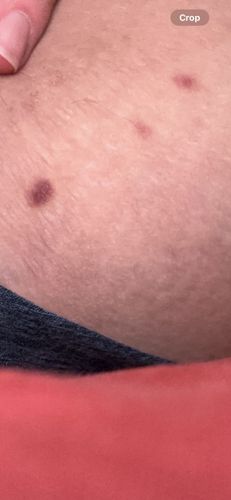Bed Bug
Scientific Name: Cimex lectularius
Order & Family: Hemiptera (true bugs), Cimicidae
Size: Adults typically 4-5 mm (0.16-0.20 inches) long, similar to an apple seed.

Natural Habitat
Primarily human dwellings, especially in beds, mattresses, bed frames, and cracks/crevices near sleeping areas. They can also be found in luggage, furniture, and wall voids.
Diet & Feeding
Exclusively feed on the blood of warm-blooded hosts, primarily humans, but also pets like cats and dogs. They are nocturnal feeders.
Behavior Patterns
Nocturnal and secretive, emerging at night to feed. They are attracted to carbon dioxide and body heat. They tend to hide in groups in dark, protected areas close to their feeding source. They are resilient and can survive for several months without a blood meal.
Risks & Benefits
Potential risks include itchy red bites (as seen in the image), allergic reactions, secondary skin infections from scratching, and psychological distress. They are not known to transmit diseases to humans. There are no known benefits to humans or the ecosystem.
Identified on: 9/6/2025